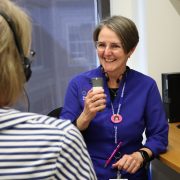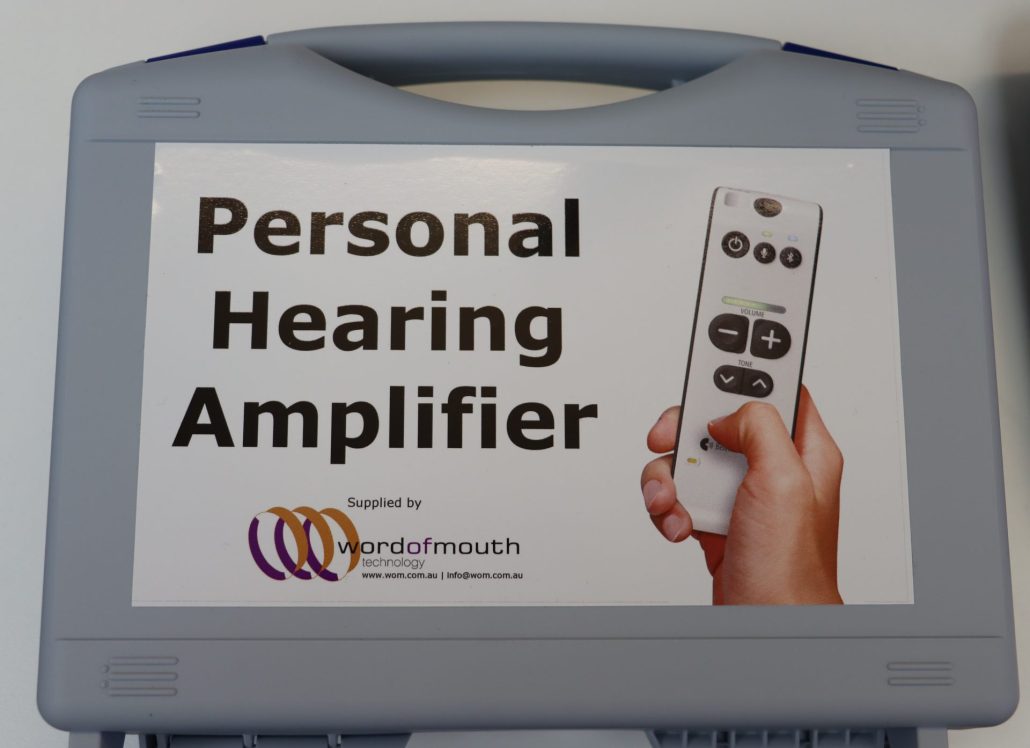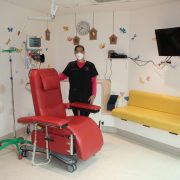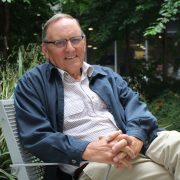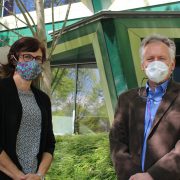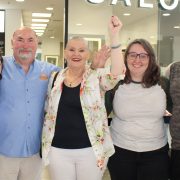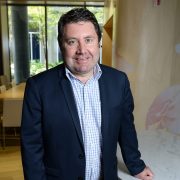Pillar 4: Equipment
Supporting Patients Every Step of the Way
For Cancer Care Coordinator Nicole Webb, learning has never just been about textbooks or degrees, it has always been about one thing: making life a little easier for patients facing cancer.
In 2019, Nicole was awarded a Trust Funded $18,000 scholarship to undertake the Master of Cancer Sciences through the University of Melbourne. The scholarship not only advanced her skills but also reinforced her commitment to ensuring that patients in our region receive the highest standard of care, close to home.
After completing her degree, Nicole became involved in a community-funded research project that explored how to better understand older patients’ needs, capabilities, and support systems. The study was instrumental in paving the way for the Enhanced Supportive Care program at the Albury Wodonga Regional Cancer Centre.
The program is unique in its approach, using photographs as a way to open conversations between patients and their medical teams about “what matters most.” For older adults facing cancer — many of whom are isolated or vulnerable — these conversations are a powerful step toward care that is truly patient-centred.
Through this work, Nicole noticed another challenge that often went unnoticed: the impact of hearing loss on older patients. When instructions were missed or misunderstood, patients were left feeling confused, frustrated, or disconnected from their care.
Nicole refused to let communication become a barrier. After researching best practices and consulting with the Cancer Centre’s speech pathologist, she approached the Trust Fund with a request for specialist equipment that could make a difference.
Thanks to the generosity of the community, the Trust Fund purchased four Personal Hearing Amplifiers. One amplifier now supports the Supportive Care Team, including the McGrath, Melanoma, Prostate, and Cancer Care Coordinators, while the remaining devices are used at Border Medical Oncology, Ramsay Health Day Oncology, and Genesis Care.
These amplifiers ensure that wherever patients are within the Centre, hearing loss will not prevent them from being part of the conversation. Patients can now hear instructions clearly, ask questions with confidence, and feel reassured that their voices are heard throughout their treatment journey.
Nicole’s dedication goes far beyond equipment and programs. Her role as a Cancer Care Coordinator is deeply personal, offering patients the kind of practical and emotional support that can make an overwhelming diagnosis feel just a little more manageable.
During the 2024–25 financial year, Nicole supported 313 individual patients, with more than 1,300 points of contact at the Centre. For many, she is more than a coordinator, Nicole is a lifeline.
One grateful patient reflected “I don’t know how I would have managed on my own. Having someone sit with me in appointments, explain things in plain language, and help with all the forms made an enormous difference. It felt like someone was finally in my corner.”
None of this would be possible without the generosity of the local community. The Trust Fund continues to fund 50% of Nicole’s role, ensuring that every patient, no matter their circumstances, has someone to walk alongside them during one of the hardest chapters of their life.
Nicole’s story is a reminder that community support is not just about dollars and cents, it is about compassion, connection, and making sure no one faces cancer alone.

